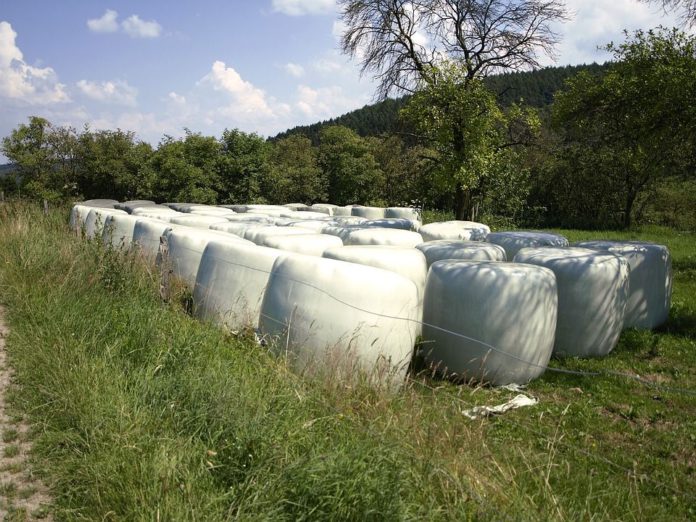Farmers in the UK are facing a plastic packaging tax on silage bale wrap at a rate of £200/t, with effect from April 1st, 2022.
According to a statement from government, the tax aims to provide a “clear economic” incentive for businesses to use recycled plastic in the manufacture of plastic packaging.
As a result, it believes this will create “greater” demand for this material.
In turn, it is of the view that this will stimulate increased levels of recycling and the collection of plastic waste, diverting from landfills or incineration.
According to guidance the HM Revenue and Customs issued, the tax will apply to plastic goods with less than 30% recycled content.
Bale wrap tax
The Green Tractor Scheme – which represents independent farm plastic collectors – estimated that this will increase the cost of farm film by £5/roll.
The scheme launched in January 2020 to help recycle all farm plastic packaging by 2030. It operates a farm plastic waste collection and recycling co-operative throughout the UK.
It believes that the tax could result in the “collapse” of its recycling scheme.
Mark Webb, chair of The Green Tractor Scheme, argued that “silage plastic is not classed as packaging plastic”.
He explained that its “primary purpose is to protect the silage and help it mature into a valuable feedstock for feeding their animals”.
Lower recycling levels
Nigel Mills, Conservative, Amber Valley, said:
“The impact of charging farmers £200/t to get the plastic in the first place will be that they will not be able to afford the £60/t for collection.”
“We will end up with lower levels of recycling. Farmers just will not pay for the collection, so there will not be a collection. The plastic will not be recycled.”
“Consequently, as a result of the tax, we will end up with less recycling of plastic than we have now.”
“According to estimates, I think from the National Farmers Union or its Northern Irish counterpart, the £200/t would increase the cost of silage film by roughly 10%.”
“This is a cost that farmers’ rivals around the world, from where we import much meat, do not have to bear.”
Why the tax should be withdrawn
He warned that the costs would “fall directly on farmers at a very difficult time for them”.
Mills listed four reasons why he believes the HMRC correct or withdraw this guidance before April 1st:
- Silage film’s primary purpose is not packaging—it is to ensure that harvested grass can be fermented into silage;
- The plastic packaging tax’s purpose is to encourage recycled material and increase the recycling of plastic material. “Extending the charge to silage film will not generate more use of recycled material in the fill. It will lead to less recycling of the film that farmers use.”
- Thirdly, he is unsure that silage film falls within the definition of the measures in the Finance Act 2021. Therefore, he believes the guidance is “incorrect and inconsistent” with the law.
- Fourthly, he believes this is “seriously damaging” for the farming industry at a “difficult time”. He is of the view that it would reduce its competitiveness against international rivals.
“All of those cases are strong reasons why the guidance, which appears to be out of sync with what had been planned, should be withdrawn,” he concluded.
See farm machinery news.





